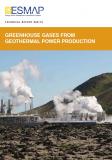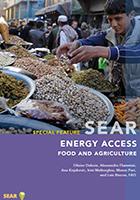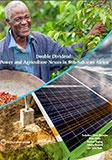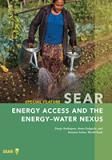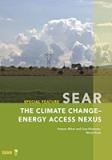Publications
Over the past century countries have been able to meet ever-higher food demands thanks to the availability of cheap fossil fuels in agriculture. But there is reason to worry about how much longer this situation can continue. If inexpensive fossil fuel ceases to be available, it will be extremely difficult to boost food production enough to meet projected food demand by 2050 (FAO is projecting a 60 percent food demand increase over 2006-07 levels). In addition, the use of fossil fuels has resulted in food systems becoming a major source of greenhouse gas (GHG) emissions, with significant contributions to global climate change. At the same time, changing climate patterns can cause severe droughts or floods and changes in water availability and soil quality, which may have a severe impact on agri-food systems. In some cases these changes can also alter energy needs.
A lack of rainfall can lead to farmers resorting to the use of groundwater for irrigation, which requires energy for pumping; gradual land degradation can result in farmers using more chemical fertilizers, which require energy to manufacture. Against this backdrop, the global community has been looking for ways to create a global food system that can support both food security and sustainable development or “energy-smart food systems,” which (i) improve access to modern energy services, (ii) rely more on low-carbon energy systems, (iii) use energy more efficiently, and (iv) are deployed through a water-energy-food nexus approach. These systems take advantage of the fact that agrifood chains—which cover the manufacturing of inputs for farming, transport, processing, storage, and distribution of farm products, and food preparation—are not only a consumer of energy but also a producer of energy. Currently, various energy-smart food systems are being experimented with around the world, and the next major hurdle will be scaling-up the best ones.
Dubois, Olivier; Flammini, Alessandro; Kojakovic, Ana; Maltsoglou, Irini; Puri, Manas; Rincon, Luis. 2017. Energy Access: Food and Agriculture. State of Electricity Access Report. Washington, D.C.: World Bank Group. http://documents.worldbank.org/curated/en/417941494928698197/Energy-access-food-and-agriculture
